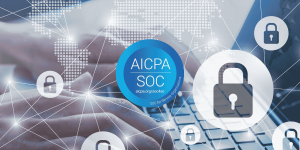Is nothing sacred? With all the phone scams these days you would think the IRS would be untouchable. To the contrary, impersonating the IRS becoming more common, leaving taxpayers wondering, “Is it really the IRS?” or is it an IRS scam?
These imposters aren’t just stopping with the phone or email. They are actually knocking on doors and conning your clients face to face. How can they determine whether a contact is really the IRS?
As a tax preparer, you probably know the IRS initiates most contacts through the US Postal Service. However, under special circumstances, such as an overdue tax bill, they pick up the phone or pay a visit.
Before they ring the doorbell, the IRS sends a series of letters they refer to as notices, through the mail. To reassure your clients so they know it’s really the IRS, and also to help keep them from falling prey to predators, let your clients know the IRS does not:
- Call to demand immediate payment with a prepaid debit card, gift card or wire transfer.
- Demand payment without offering to answer questions or allowing appeal over the amount owed.
- Threaten to bring in law enforcement or immigration officers to arrest people for not paying.
Be sure your clients also know the IRS cannot revoke a driver’s license or immigration status. Scammers use threats such as these to intimidate, or trick, victims into buying into their schemes.
If the IRS plans an unannounced house call, he or she will always provide two forms of official credentials. Advise clients to ask to see them. Tell them it’s their right.
If they show up to collect a tax debt, they probably won’t look anything like the Men in Black and they will not demand immediate payment to a source other than the US Treasury. IRS criminal investigators may visit unannounced while conducting an investigation. These are federal law enforcement agents and they will not demand any sort of payment.
IRS employees may call taxpayers to set up appointments to schedule audits, but again, the initial contact will be by mail. If a client suspects fraud they may contact one of the following:
Phone IRS Scams:
Call the Treasury Inspector General for Tax Administration Use their “IRS Impersonation Scam Reporting” webpage. Or call 800-366-4484.
Email IRS Scams:
Report an unsolicited email claiming to be from the IRS, or an IRS-related component like the Electronic Federal Tax Payment System, to the IRS at phishing@irs.gov.
IRS Solutions has a robust security protocol. You can assure your clients that their data is safe and secure with you. Use your customized url portal to have them send you documents securely.






